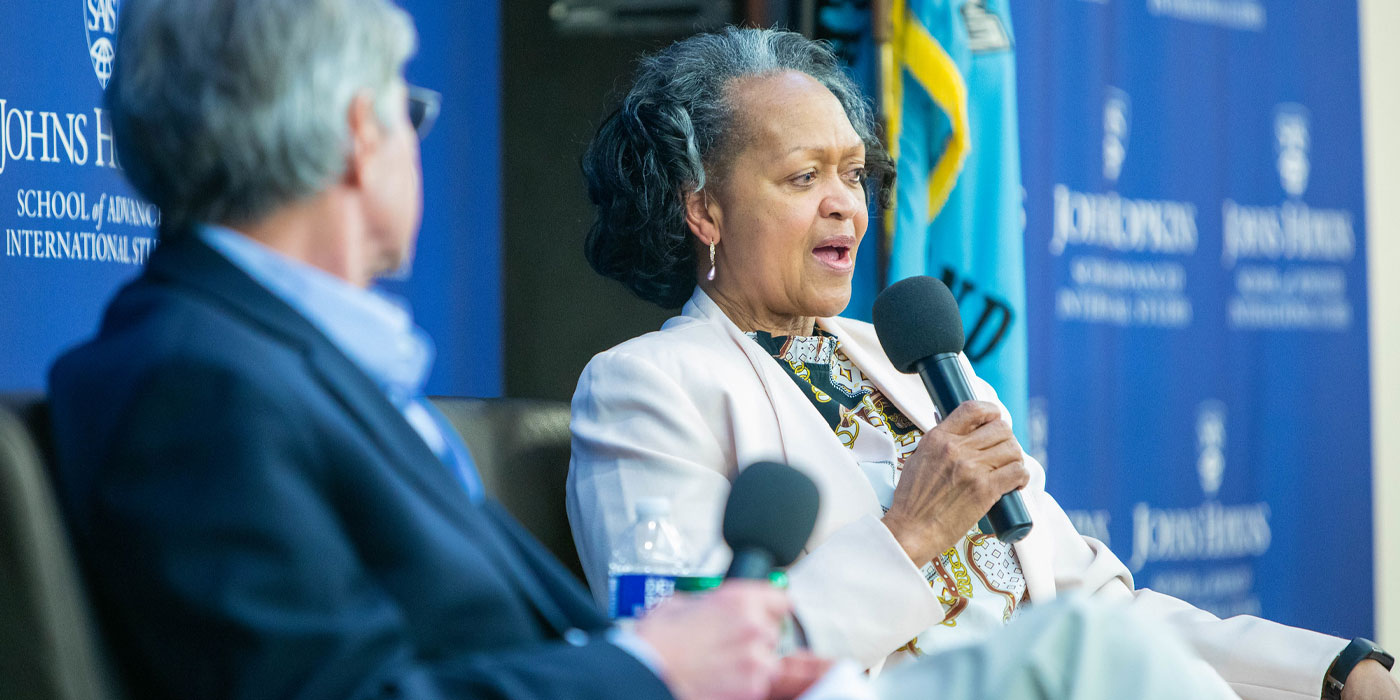Advance Your Career
Our global team of career counselors have a proven track record for connecting talented students with rewarding career opportunities.

There has never been a more exciting time to study international relations at a graduate school with a proven reputation for producing influential, innovative, and accomplished graduates.
400+ Think Tanks
Just steps from organizations that shape the world.
175 foreign embassies, residences, chanceries, and diplomatic missions.
40+ Student Nationalities
Bologna, Italy: gateway to Europe, Africa, and the Middle East
14 students per class on average
100% Students Receiving Scholarships
Oldest university partnership between China and US
120K+ volumes housed in top collection on international affairs
Our global team of career counselors have a proven track record for connecting talented students with rewarding career opportunities.
Johns Hopkins SAIS hosts top policy makers and global leaders. Our faculty experts maintain close connections with other international affairs research scholars, practitioners and thought leaders around the world. These networks provide SAIS students with unparalleled learning opportunities inside the classroom and out, preparing them for remarkable success as they help meet the world’s most pressing challenges.
